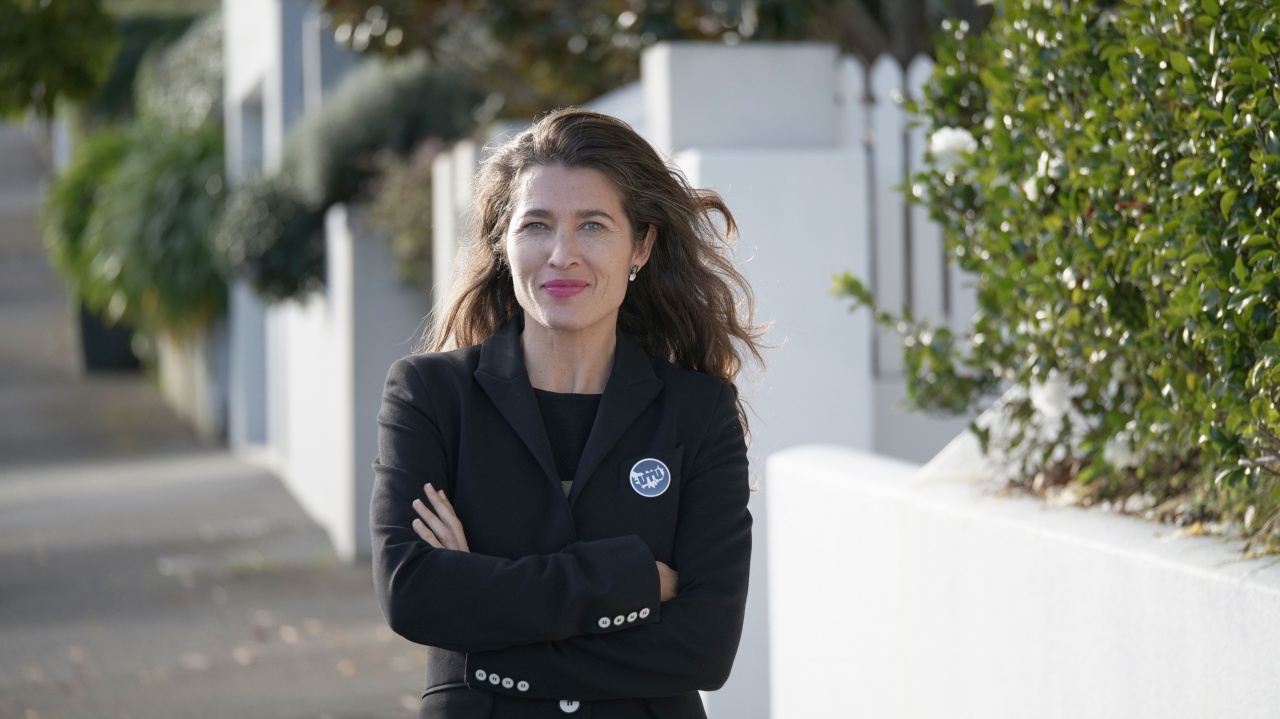Chelsea Winstanley returned to Tāmaki Makaurau Auckland with a vison – to share the unique cultural stories of Aotearoa with the world and help nurture our local screen industry.
A filmmaker, visual storyteller, Academy Award-nominated producer and Kea World Class New Zealand Award winner, Chelsea is the founder of This Too Shall Pass, a Tāmaki Makaurau-based production company that strives to give indigenous stories agency, from pre-production through to screen.
Chelsea, who is of Ngāti Ranginui and Ngai Te Rangi ancestry, says her journey into the screen industry began with a degree in television production at Auckland University of Technology (AUT), where she developed a passion for directing and cultural storytelling.
When I left university, I wanted to make documentaries and I always knew that my interest in storytelling was deeply rooted in Māoridom.
Having graduated top of the class, Chelsea was hired at Kiwa Productions where she directed a range of content, including the Media Peace Award-winning documentary, Tame Iti: The Man Behind the Moko. When Kiwa Productions suddenly lost a producer, Chelsea fell into the role.
"It was a really good training ground for me. I had to figure out how to nurture a production and it's really like nurturing a small child. It's a long love affair and there's something about manaakitanga within that, which I think comes naturally for a lot of Māori, especially women."
Chelsea's talent has seen her produce some of New Zealand's most successful short and feature films including Meathead, Night Shift, and the international box office hits What We Do in the Shadows and Academy Award-nominated JoJo Rabbit.
Chelsea returned to the world of documentaries in 2018, producing Merata: How Mum Decolonised the Screen – feature on the life and work of her filmmaking idol and key figure in the Māori screen industry, Merata Mita. It was this work that led her home to Aotearoa.
"When I came back for the premiere of Merata: How Mum Decolonised the Screen, I heard about the Toi Tū Toi Ora exhibition at Auckland Art Gallery Toi o Tāmaki and I was so excited. I thought it would be phenomenal to document the exhibition and show people what it takes to put something like that on."
While making the feature-length documentary, Chelsea filmed a preview for the Toi Tū Toi Ora exhibition entirely on an iPhone 12Pro Max. She says she loved documenting what was a milestone – the first time in the gallery's 132-year history that the entire gallery space was dedicated to Māori art.
It was just everything that I kind of love about storytelling – Māori from beginning right through to end – and I saw it as a real celebration.
As the COVID-19 pandemic took hold around the world, Chelsea made the decision to stay permanently in Aotearoa New Zealand with her young family. She says the move has enabled her to return to her roots – from producing back to directing and indigenous storytelling.
Chelsea's projects at This Too Shall Pass centre on "authentic stories from unique cultural perspectives". She firmly believes the world is better and richer when stories are shared, and that New Zealanders shouldn't be afraid of celebrating what makes us unique.
"The rest of the world loves our indigenous content. Seven out of 10 of the highest grossing Kiwi films are either about Māori or have Māori helming the creation, be it in the role of directing, producing or writing. It's something that people are really interested in, and I think we just need to embrace that."
Chelsea says while the pandemic has presented challenges to the local screen industry – which includes film, television, gaming, visual effects (VFX), immersive technologies and digital content – New Zealand's successful management of COVID-19 has enabled the country to remain open for business.
"The rest of the world has seen us as a place that can still keep going through the pandemic and we're really lucky for that opportunity and shouldn't let it pass by. The government should see the screen sector as a very viable industry and invest in it to keep it going because it's an amazing export." *
Having made films around the world, Chelsea believes Auckland's screen sector is well-placed to compete on the world stage.
Tāmaki Makaurau Auckland is a fantastic place to create and make films. We have world-class facilities, we have incredible crew, and it's quite unique and it's beautiful – you can get from one coast to the other in less than an hour.
Chelsea says Auckland's thriving screen sector, which contributed $1.14 billion to the region's GDP for the year ended March 2020, is an incredible asset for the region and she encourages Aucklanders support the sector and the opportunities it creates.
"When a production comes to town, there can be a little bit of inconvenience with trucks, equipment and whatnot, but we need to think about how many people are employed. There could be jobs for hundreds of people, both behind and in front of the camera. From someone who makes coffee to a builder, electrician, hairdresser or actor – there are so many opportunities for rangatahi to get involved and learn new skills in many departments."
Chelsea says returning from Hollywood to home has been a rewarding experience and she's energised by the potential of Auckland's screen sector for sharing stories and generating employment.
"The thing about good stories is that they resonate, so I think we have to get that message out there because the more we can help support the industry the more jobs we can create."
Additional footage and images kindly supplied by Chelsea Winstanley, Auckland Art Gallery Toi o Tāmaki, Māori Television, and Kea New Zealand.
*This interview took place before the August 2021 lockdown.
